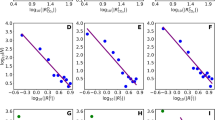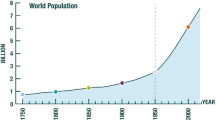Abstract
We study the processes of global self-regulation of Earth’s biota (GAIA-theory) by applying the method of adaptive balance of causes proposed by the authors. By using, as an example, the Daisy World model constructed by this method, we reveal the phenomenon of preservation of the mean temperature of Earth’s surface due to the presence of the vegetation cover. We develop an integral model of global natural, social, and economic processes in which the World Ocean is one of the factors regulating the amount of greenhouse gases in the atmosphere. The decrease in the amount of greenhouse gases in the atmosphere caused by the GAIA-effects increases the number of hurricanes and floods on the Earth. As a result, the levels of ecological and social hazards for the mankind become much higher. To eliminate these threats, it is necessary to intensify the processes of self-organization of the society realized via the improvement of education, development of science, and global regulation of the competition for natural resources. We present the results of numerical experiments performed by using the model demonstrating possible scenarios of global development with regard for the processes of self-organization of the society.
Similar content being viewed by others
References
J. E. Lovelock, Gaia: The Practical Science of Planetary Medicine, Gaia Books, London (1991).
V. I. Vernadskii, “On the conditions of appearance of life on the Earth,” Izv. Akad. Nauk SSSR. Ser. Geol. Geokhim., No. 2, 633–653 (1931).
K. Downing and P. Zvirinsky, “The stimulated evolution of biochemical guilds: reconciling of Gaia theory and natural selection,” Artif. Life, 5(4), (2000).
D. Sherwood, “Global warming and the Gaia theory—a systems approach,” in: Proc. of the 2004 Internat. Conf. of the System Dynamic Society, Oxford, UK (2004); URL: www.systemdynamic.org.
I. E. Timchenko, E. M. Igumnova, and I. I. Timchenko, System Management and ABC-Technologies of Sustainable Development [in Russian], ÉKOSI-Gidrofizika, Sevastopol (2000).
I. I. Timchenko, E. M. Igumnova, and I. E. Timchenko, Education and Sustainable Development. System Methodology [in Russian], ÉKOSI-Gidrofizika, Sevastopol (2004).
J. E. Lovelock, Gaia: A New Look at Life on Earth, Oxford University Press, Oxford, UK (1979).
R. Charlson, J. Lovelock, M. Andreae, and S. Warren, “Ocean phytoplankton, atmospheric sulfur, cloud albedo, and climate,” Nature, 326, 655–661 (1987).
L. Margulis and D. Sagan, What Is Life, Simon & Schuster, New York (1995).
A. J. Watson and J. E. Lovelock, “Biological homeostasis of the global environment: the parable of Daisyworld,” Tellus, 35B, No. 4, 284–289 (1983).
V. N. Eremeev, E. M. Igumnova, and I. E. Timchenko, Simulation of Ecological Economic Systems [in Russian], ÉKOSI-Gidrofizika, Sevastopol (2004).
A. B. Kachyns’kyi, Safety, Hazards, and Risk: Scientific Concepts and Mathematical Methods [in Ukrainian], Naukova Dumka, Kiev (2003).
G. Soros, The Crisis of Global Capitalism [Open Society Endangered], Public Affairs, New York (1998).
Author information
Authors and Affiliations
Additional information
__________
Translated From Morskoi Gidrofizicheskii Zhurnal, No. 3, Pp. 62–80, May–June, 2007.
Rights and permissions
About this article
Cite this article
Timchenko, I.E., Igumnova, E.M. & Solodova, S.M. Adaptive balance of global development processes. Phys Oceanogr 17, 173–189 (2007). https://doi.org/10.1007/s11110-007-0014-8
Received:
Revised:
Issue Date:
DOI: https://doi.org/10.1007/s11110-007-0014-8




